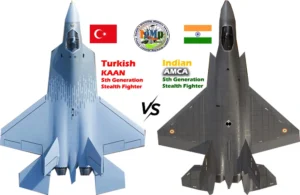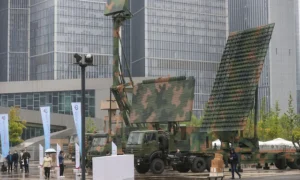
In a wide ranging discourse on India-Australia relations Peter Dutton MP, Federal Member for Dickson and Leader of the Liberal Party, Australia spoke about enhancing the security and defense cooperation between the two countries especially in view of the ongoing conflicts in Eastern Europe and in the Middle East. He also called for frequent military training operations with other countries in Asia to enhance regional security. The Minister was speaking in New Delhi at a distinguished public lecture on the theme India-Australia Relations, organized by the Center for India Australia Studies at O.P. Jindal Global University where he also dwelt upon economic cooperation and energy security.
“We have been looking at events around the world with increasing concern; in Eastern Europe, Ukrainians continue to fight valiantly to repel Russian forces from their territory. In the Middle East 27 days ago, terrorists from Hamas attacked Israel. With the end of the Cold War, many prophesized the coming of a world of democracies.
But they were wrong in the forecast regrettably. The days of disputes and the age of autocrats is not behind us. Times of terrorism have not disappeared. Recent world events are a reminder that civilization doesn’t tilt naturally towards democracy. Democracy is always under threat. Democracy needs to be nurtured and defended. This is a time for India and Australia to demonstrate the strength of our democracies. First, and most importantly, it’s in defense and security. In these precarious times, we should aim to increase the tempo and the frequency of our joint military training activities and deployments. And not just at the bilateral level, but also multilaterally with our other partners in the region. The former Australian coalition government of which I was a senior member, signed two defense agreements with India, the Defense Science and Technology agreement to improve collaboration between our research organizations and to facilitate a greater industrial partnership and mutual logistic support agreement to enhance our military engagement. Such arrangements are just the foundations for what we can do together,” Dutton said.
Peter Dutton also warned about the true nature of authoritarian regimes. “This is not a time for appeasement. Whenever we witnessed authoritarian coercion and aggression, it is vital that nations large and small link together to unequivocally condemn such behaviour. Australia and India have collaborated with Japan and the United States, as part of the QUAD, which is an emphatic statement of our desire for peace in the region. I truly hope that India recognizes the sheer magnitude of its own influence to do good. India is one of the greatest accomplishments of growth and advancement of any nation in modern history and has emerged as the world’s largest democracy and one of the fastest growing major economies. The strength of Australia and India’s democracy also lies in strengthening our economic relationship. We signed the historic economic cooperation and trade agreement which is creating new ventures between our industries and businesses. The agreement of course, means that by the beginning of 2026, 100% of imports from India into Australia will be tariff free. Another area where there is enormous potential for future mutual economic benefit is in energy security. India is, of course, a nuclear power nation with some 22 reactors in operation. Australia at this point in time, it’s not a nuclear power nation. If we don’t lift our moratorium to accommodate these new nuclear technologies, Australia risks becoming a nuclear power pariah. Nuclear power is the only feasible and proven technology which can firm up renewables at the scale that is needed. We are exceptionally well positioned to unleash uranium export potential and support India’s growing demand. The number of Australians with Indian ancestry today numbers more than 780,000. More than 100,000 visas were granted to Indians to study in Australia. The migration and mobility partnership agreement will facilitate a greater two-way flow of students or graduates of academics and business people. It will open new pipelines of friendship, opportunity and enterprise which multiply the connections between our two nations.”
Peter Dutton also paid homage to Late O.P. Jindal, in whose memory the university was established as a philanthropic initiative by his son and benefactor of JGU, Naveen Jindal.
Welcoming Peter Dutton, the Founding Vice Chancellor of O.P. Jindal Global University said, “Australia and India share numerous values as vibrant democracies based on diversity, inclusivity and pluralism. International higher education plays a key role in strengthening relationships. As a global university, we strongly believe that international education is critical and boundaries on knowledge need to be broken. At JGU we have invested in a strong relationship with Australia. We collaborate with 25 out of 43 Australian universities with whom we have signed partnerships. Nearly 34 of our faculty members have Australian degrees. We also have joint conferences and over 400 Australian students have been on our campus and this number will double by early next year. The Jindal Global School is the only law school from India which has been recognized by the Law Council of Australia. These are just a small example of the deep and pervasive relationship that we have with Australia, not only confined to the universities but also even beyond.”
The delegation also included Dr. Jagvinder Singh Virk Chairman, India Australia Strategic Alliance who underlined the importance and value of Australian educational qualifications and how Indian students have benefited from their experience in various institutions. Professor (Dr.) Mohan Kumar Dean, Strategic & International Initiatives, O.P. Jindal Global University reflected on the India-Australia strategic relationship and opined how it has grown from strength to strength in the last few decades in all spheres for collaboration and cooperation. The vote of thanks was given by Professor Dabiru Sridhar Patnaik Registrar, O.P. Jindal Global University who underlined the growing association between JGU and Australian higher education institutions.
Source link







